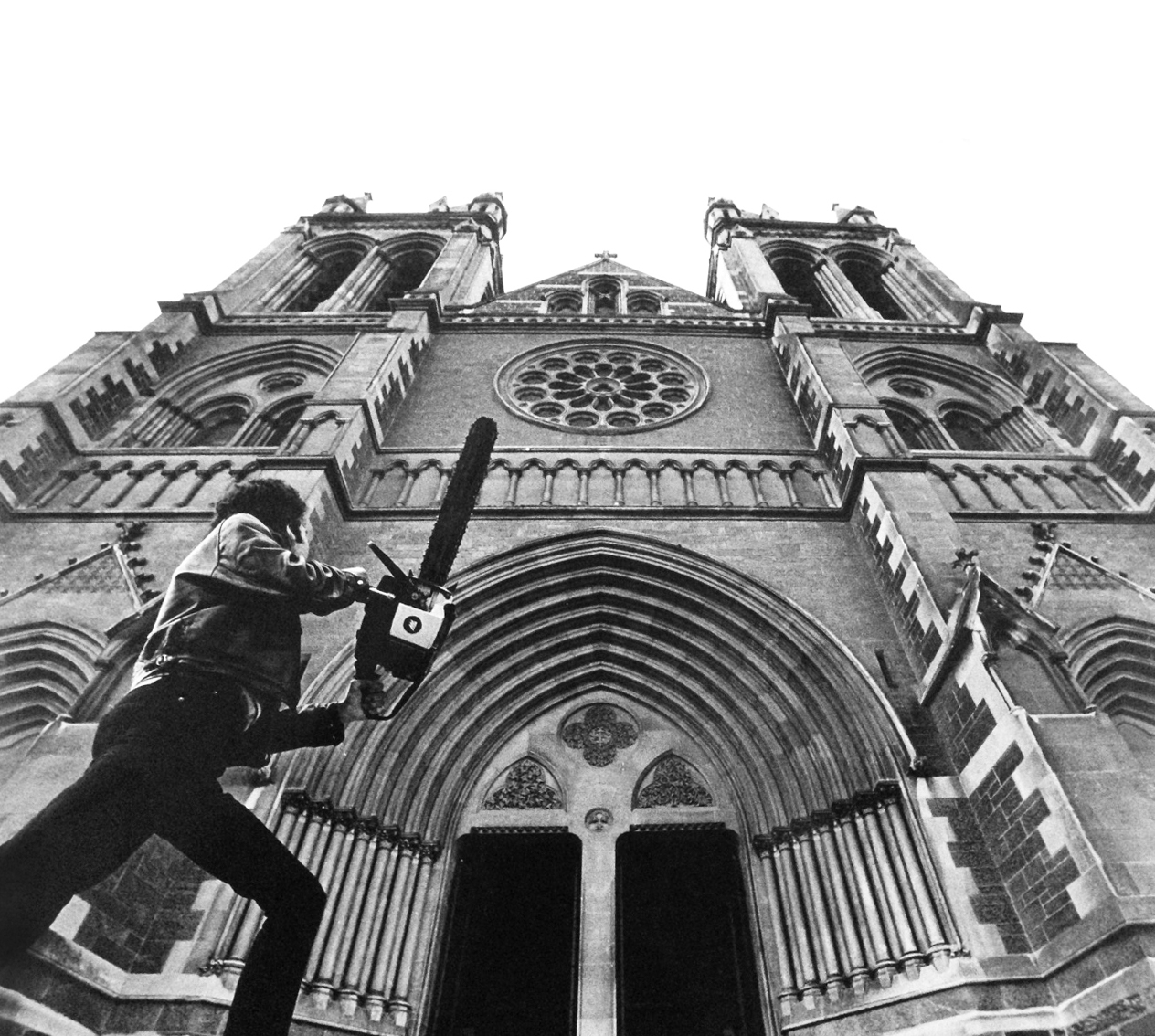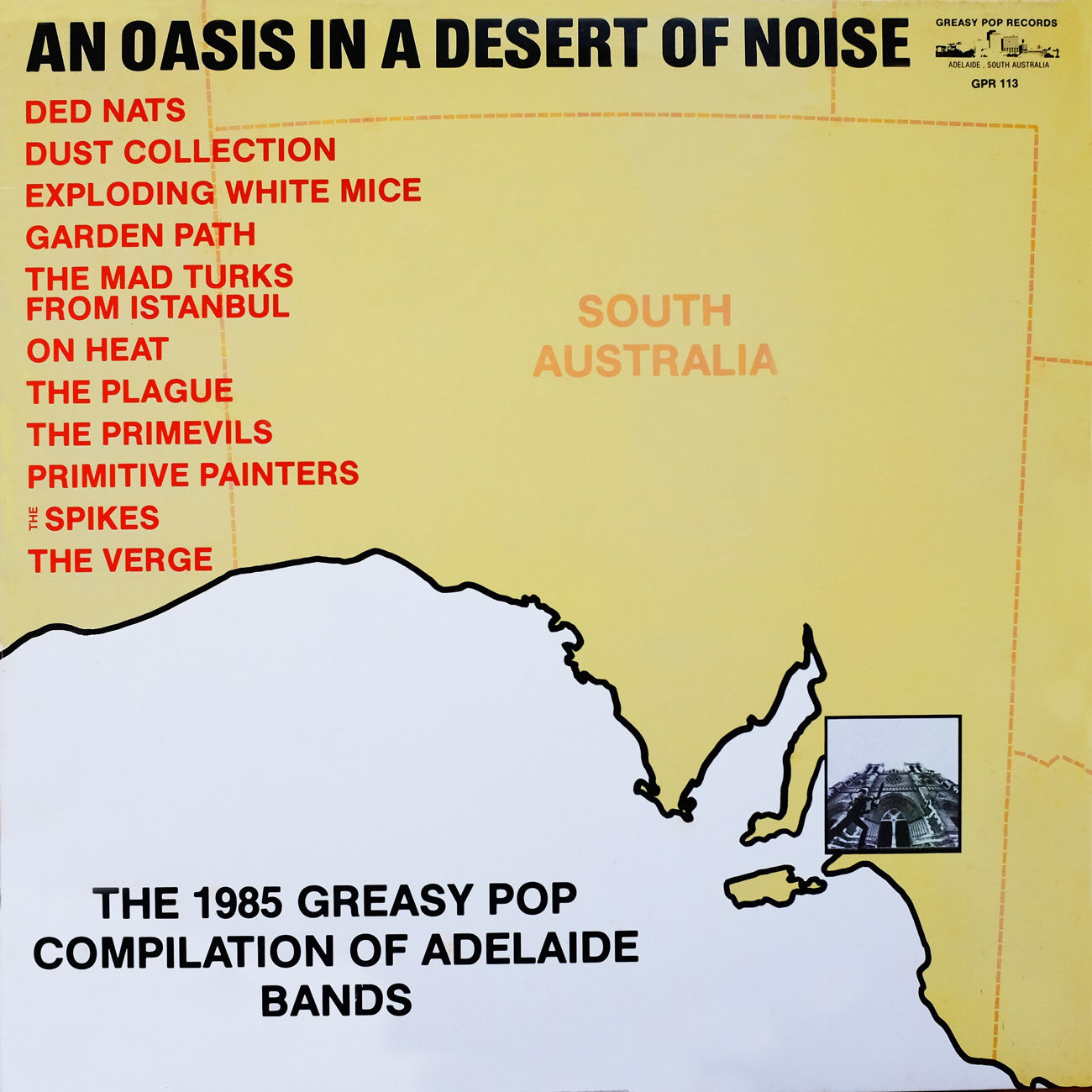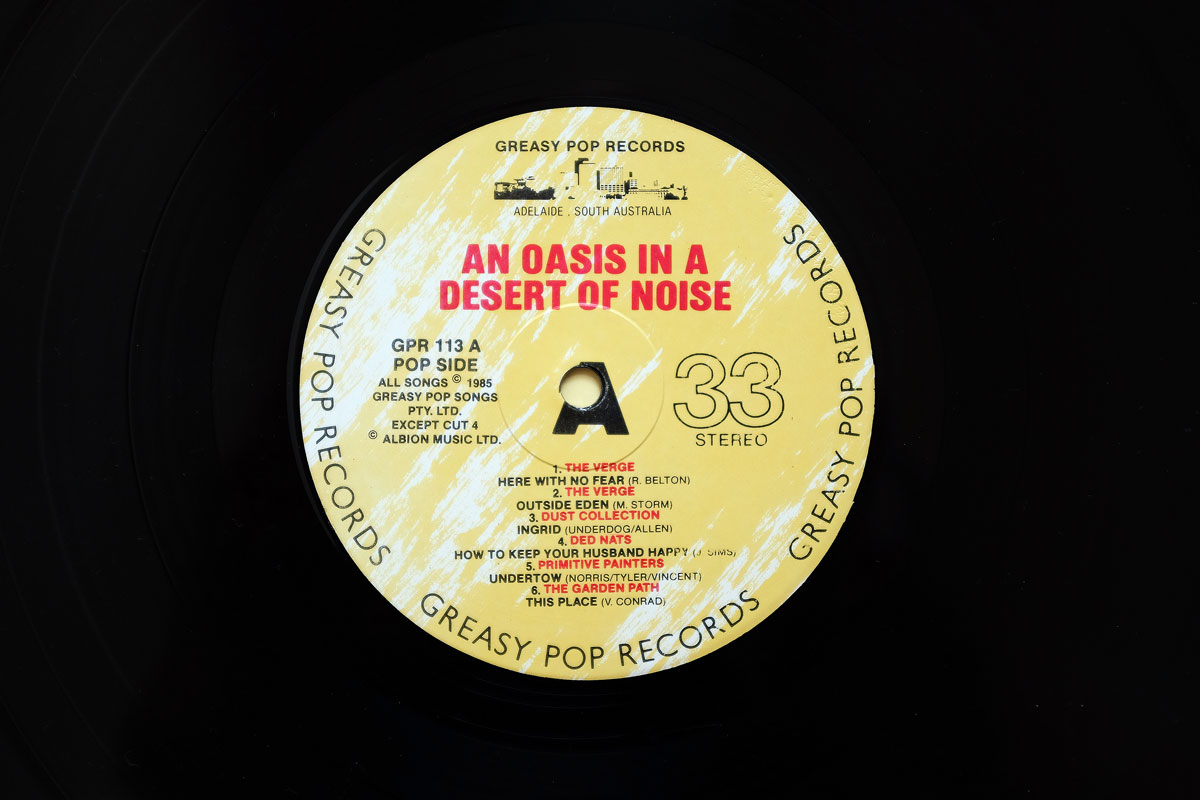
Walter Marsh
Walter is a writer and editor living on Kaurna Country.

For many music fans and former players, Adelaide in the ‘80s can be summarised by two words: Greasy Pop.
It’s a term that evokes a time when vinyl wasn’t the domain of de rigueur revivalism but a thing of necessity, the State Bank collapse had yet to quash the nauseating corporate optimism of the ‘80s and the band rooms of the Tivoli and Austral had yet to be extinguished by residential developments.
In other words, perfect conditions for a fertile, unapologetic wave of South Australian bands creating their own industry from scratch. At the centre of it all was music store clerk and guitarist Doug Thomas, whose decision to fund the pressing of his band The Dagoes’ first single led to a decade running one of Adelaide’s best-known record labels.
Thirty years ago Greasy Pop Records issued what has become its most seminal release, and an intriguing time capsule of Adelaide’s 80s underground: An Oasis In A Desert Of Noise.
“It still seemed like any artists serious about success had to move to the music industry centres of Sydney or Melbourne – most local independent releases seemed to be one-offs by the band themselves,” Thomas recalls from his current home in Perth. Despite a healthy independent scene in the 1970s, by the next decade the absence of labels left Thomas fielding requests from other local bands to release their records too.

“By 1985 and about 20 releases in, I had a backlog of recordings ready to go and no capital to release them,” Thomas says of the compilation’s genesis. “Prior to An Oasis… I had only released 4 LPs, and with singles I’d discovered that I needed to sell about 1000 to cover costs. So it made sense to compile a batch of my favourite recordings by bands that I liked, from demos or from seeing them play live.”
Divided neatly into two halves, the album’s A-side groups the more pop-oriented, jangly guitar numbers including The Dust Collection’s Chills-esque Ingrid, Primitive Painters’ catchily desolate Undertow and Ded Nats’ cover of the bouncy, satirical feminist anthem (How To Keep Your) Husband Happy by NYC new wave outfit The Cosmopolitans.
Flipped over, listeners waded deeper into the murky rock depths of the sixties inspired The Garden Path and contributions from two of Greasy Pop’s biggest acts The Mad Turks and Exploding White Mice.

“I guess there was that feeling of ‘capture the scene now, before the bands fall apart’,” he says. “The project took over twelve months to complete and I assume I was juggling songs to hear what flowed best.
Somehow it all fell into place and was finally released in March 1986.” The record became Thomas’ biggest seller locally, a fact he half-jokingly attributes to the bands’ network of relatives. But three decades later the influence of the Greasy generation can still be felt, name-dropped by nationally prominent exports like Bad//Dreems and sharing a common musical (and sometimes genetic) lineage with many of the loud, avowedly independent bands still being pumped out of Adelaide’s DIY scene.
Thomas’ daughter Jessica Lawlor was a member of key 2000s outfit Hit The Jackpot, while Vic Conrad of The Garden Path continues to appear in recordings by newer acts like Wireheads.
This lasting influence is testament to the restless creative energy of this community of overlapping bands, galvanised by a lot of hard work from Thomas along the way. “Greasy Pop Records really was a ‘cottage industry’, run from my home in Ethel Street, Forestville, and I guess I wanted those releases to look as good as possible.” Often that meant long nights and sticky fingers from painstakingly assembling sleeves by hand.
“Some of the bands helped glue their covers and I tried a local sheltered workshop, but the best results with least damage were achieved sitting up all night gluing them myself. Perfect if it was post-gig, because there was no way I could get to sleep before dawn.”
Greasy Pop’s impact extended beyond Adelaide, with records finding their way to America, Italy, Germany, France, Scandinavia and Spain, with one band even invited to tour Sweden on the back of their debut EP. Ultimately it was this international reach, often through murky and financially perilous sub-licensing agreements, that proved to be the tipping point for Thomas after 10 years working on the label.
“In fact, the end came for me with one large unpaid export order in 91,” he says. “Broke and fried I had to call it a day.”
But sadly, opportunities are slim for music fans to get a firsthand taste of the Greasy Pop era today. Unlike Kiwi contemporaries Flying Nun Records there is no deluxe reissue series or plush coffee table books. Although talk of a two disc Thomas-curated compilation briefly circulated a few years ago, so far nothing has officially materialised.
Three decades after its original release, the only way to experience the many hidden gems of An Oasis In A Desert Of Noise is to either trawl internet auction sites or pull up a chair in the decidedly un-rock n roll reading rooms of the State Library of South Australia, where cassette dubs of it and much of the Greasy Pop discography can be listened to (quietly).
But if you do manage to snag a copy, it remains a potent and vital-sounding cross-section of Adelaide music.

Walter is a writer and editor living on Kaurna Country.